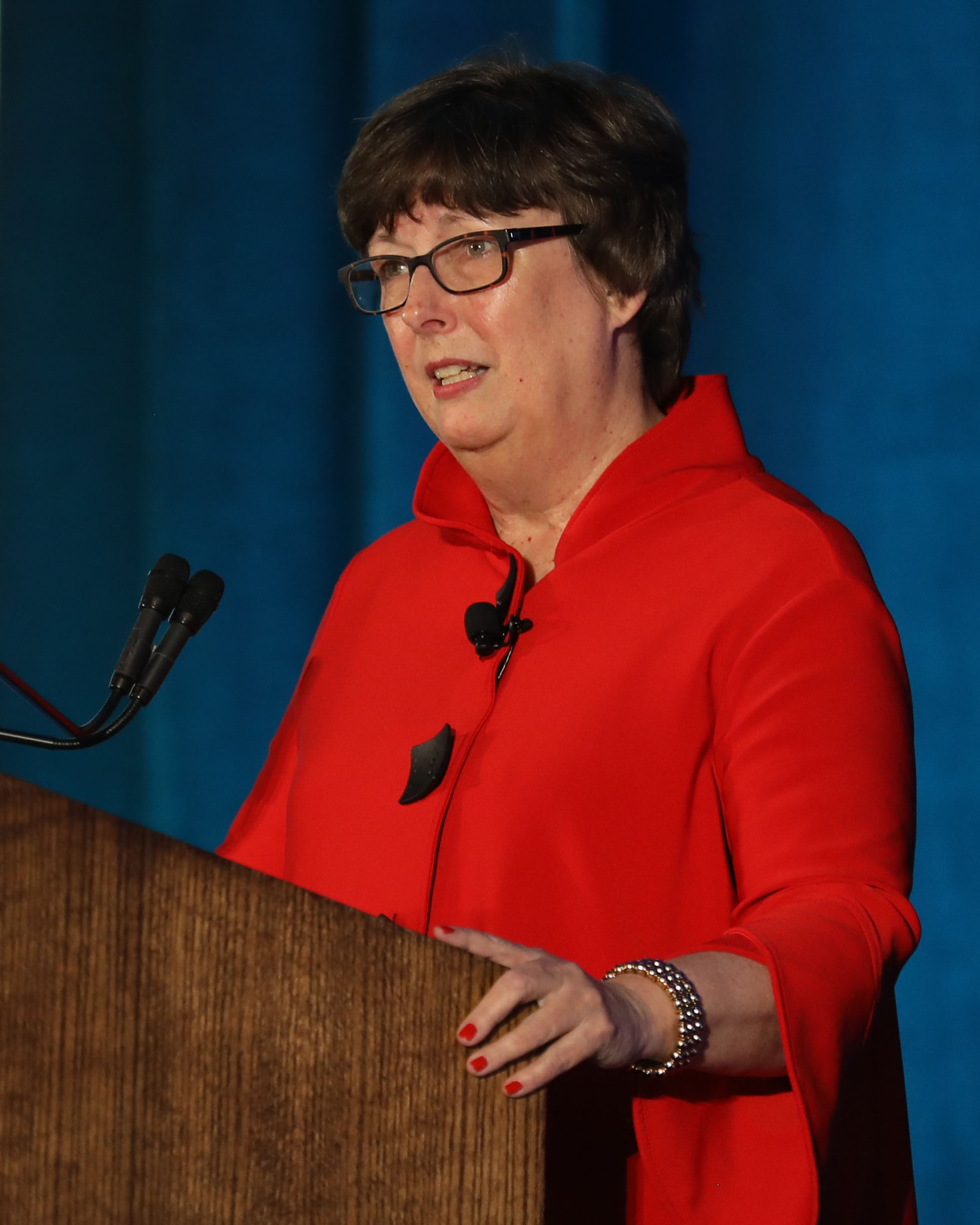
Laura Fennimore, DNP, RN
The current political and public policy environments are ripe for nurse and patient navigators to begin advocating for their professions.
“Because you know the needs of your patients and their caregivers, your voices are needed now more than ever to advocate for them,” said Laura Fennimore, DNP, RN, professor in the Acute and Tertiary Care Department at the University of Pittsburgh School of Nursing.
At the AONN+ 2023 Annual Conference in San Antonio, TX, she discussed the current political and public policy environments as they relate to oncology navigation, shared available opportunities for navigators to get involved in advocacy efforts, and called attention to the urgency for nurse and patient navigators to raise their voices in the arena.
“AONN+, ANA [American Nurses Association], ONS [Oncology Nursing Society], and many other organizations provide a multitude of opportunities to get involved in advocacy efforts,” she said. “So get involved today.”
According to Dr Fennimore, navigators should approach getting involved in advocacy efforts by first considering the age-old prompts: Who, Why, What, and How?
WHO?
Although nurses and navigators may not immediately spring to mind when thinking of policy and advocacy, she argues that they bring their own significant advantage to the arena.
According to the scope and standards of the ANA, the role of nurses includes championing the voice of the healthcare environment, as well as informing the political arena about the role of nurses in providing optimal care delivery.
“There are very few nurses and physicians in politics, but more than anyone else in the halls of Congress—whether at the state or the federal level—you have the superpower of knowing what your patients need,” she said. “For the most part, these folks don’t have a lot of background relative to healthcare. They don’t know about managing someone who’s dealing with a cancer diagnosis and treatment. They need to hear your stories, and that’s what makes this your superpower.”
WHY?
According to Dr Fennimore, getting involved in advocacy is a right granted to US citizens, and one that should be put to use.
“The First Amendment gives us the right to petition our Congress peacefully,” she said. “I think when we look at what’s happening across the world today, it becomes clear that this is an important right, and one that we cannot take for granted.”
Second, nurses are considered among the most trusted and ethical of professions: nurses continue to garner the highest ethics rating from Americans among a diverse list of professions, a distinction they have held in the Gallup Poll for more than 2 decades.
In addition, 79% of US adults say nurses have “very high” or “high” honesty and ethical standards, which far exceeds any of the other 17 professions rated.
“This is perhaps one of the most basic reasons why you need to do this work: because the public trusts us,” she noted.
Finally—and put simply—advocacy is part of the nurse’s job description. According to the scope and standards of the ANA, the role of nurses includes championing the voice of the healthcare environment, as well as informing the political arena about the role of nurses in providing optimal care delivery.
WHAT?
Navigators should identify what issues they might choose to discuss with members of Congress. “Being aware of what is happening in politics is important in your role as a patient advocate and as a nurse,” she said. “It’s important to recognize that advocacy requires a response to politics.”
While voting may be one of the most obvious responses to politics, choices can be made all the time that raise political awareness and promote advocacy. (Dr Fennimore provided the example to attendees of simply attending her session on advocacy at the AONN+ conference.)
Making your voice heard is a crucial first step, but making sure you’re actually recognized by policy makers is equally crucial. “That’s where your letters, calls, and visits to the local—as well as perhaps the state or federal office of your legislator—is important,” she added. “And it helps to actually pick up the phone and talk to a legislative aide; they’ll write down what you say, and there will be a formal record of it.”
Identifying what needs to change (ie, garnering more financial support for oncology patient navigation, promoting health education) is vital to the mission of advocacy. Resources such as the AONN+ Policy and Advocacy Committee and the ONS Health Policy Agenda are invaluable when it comes to understanding health policy and issues specific to the care of people with cancer (ie, oral cancer drug parity, lymphedema sleeve coverage, etc).
Finally, although we may be living in politically turbulent times, Dr Fennimore pointed out that this makes it even more important for navigators to advocate for patients and their caregivers.
HOW?
Now it’s time to actually get going with advocacy efforts, starting by reviewing your civics lessons. Some might remember the song “I’m Just a Bill” from Schoolhouse Rock; according to Dr Fennimore, this song still demonstrates very effectively just how our government works in the United States.
Tell your story; when communicating with representatives or legislative aides, keep in mind that research has demonstrated stories to be far more effective for changing behavior than information-heavy narratives.
“It’s important to understand the advocacy environment, and to remember that it’s a marathon and not a sprint,” she added. “There are no quick fixes.”
“Think globally; act locally,” she advised. It’s important to remember that big change can start by first taking action in your own community—consider contacting your city council, local health department, or local newspaper with issues of concern.
Tell your story; when communicating with representatives or legislative aides, keep in mind that research has demonstrated stories to be far more effective for changing behavior than information-heavy narratives.
Finally, be a part of the discussion. “And remember,” she said, “if you’re not at the table, you’re on the menu.”




